The 2021 Kawasaki Ninja ZX-6R: A middleweight legend
Contents
The 2021 Kawasaki Ninja ZX-6R is one of the few remaining 600cc Super-Sport bikes. Unchanged since a makeover in 2019, the Japanese-made middleweight remains one of the last true inline-4 600cc crotch rockets.
The Ninja ZX-6R is simply a damn good bike. It has been set up so well by Kawasaki. The choice of gearing makes the most of the torque from the 636cc 4-stroke, In-Line Four, DOHC, 16-valve, rev monster, both down low in the rev range and up near the 16,000 RPM redline. Making 94.9 kW (127.3 hp) @ 13,500 RPM and 70.6 N⋅m (52.1 lb⋅ft) @ 11,500 RPM, it has the jam to perform on the street and on the track.
The Ninja ZX-6R remains part of the 2021 Kawasaki Lineup but it makes me wonder if this could be the last of the legend. Euro 5 regulatory compliance mandates a change is coming, what that will look like remains to be seen.
Interestingly you can configure a Ninja ZX-6R a few ways. In Canada, you can get a non-ABS version, but only in KRT colors. In the ABS versions, the KRT graphics are a $300 upcharge. For the USA if you choose KRT graphics you get ABS standard, if you want either Pearl Nightshade Teal or Metallic Spark Black it appears there is no ABS option. This will need to be confirmed with your dealer.
The 2021 Kawasaki Ninja ZX-6R starts at $10,199 USD / $12,399 CAD.
On this page: we’ve curated specs, features, news, photos/videos, etc. so you can read up on the new 2021 Kawasaki Ninja ZX-6R in one place.
Model Overview
General Info
- Price: $10,199 USD / $12,399 CAD
- Key Features:
-
- Kawasaki Intelligent Anti-lock Brake System (KIBS)
- Kawasaki Traction Control (KTRC)
- Selectable power modes
- Naturally aggressive ergonomics with an adjustable clutch lever
- Multi-function LCD screen
Main Specs
- Engine: 636cc 4-stroke, In-Line Four, DOHC, 16-valve
- Power: 94.9 kW (127.3 hp) @ 13,500 RPM
- Torque: 70.6 N⋅m (52.1 lb⋅ft) @ 11,500 RPM
- Wet Weight: 195 kg (430 lb)
- Seat Height: 830 mm (32.7 in)
Competitors
- Aprilia Tuono 660
- Suzuki GSX-R600
- Honda CBR600RR (Not available in USA)
2021 Kawasaki Ninja ZX-6R Specifications
ENGINE |
||
| Engine | 636cc, liquid-cooled, 4-stroke, DOHC 16-valve in-line four | |
| Power | 127.3 Hp | |
| Bore x Stroke | 67.0 x 45.1 mm | |
| Compression Ratio |
12.9:1
|
|
| Fuel System | Fuel injection: ø38 mm x 4 with oval sub-throttles | |
| Starter | Electric | |
| Lubrication | Forced lubrication, wet sump | |
DRIVETRAIN |
||
| Clutch | Wet multi-disc, manual | |
| Transmission | 6-speed, return | |
| Final Drive | Chain | |
CHASSIS |
||
| Suspension Front | ø41 mm inverted fork (SFF-BP) with rebound and compression damping and spring preload adjustability / 120 mm (4.7 in) | |
| Suspension Rear | Bottom-Link Uni Trak, gas-charged shock with piggyback reservoir, compression and rebound damping and spring preload adjustability / 151 mm (5.9 in) | |
| Brakes Front | Dual semi-floating ø310 mm petal discs with radial-mount, monobloc, opposed 4-piston calipers | |
| Brakes Rear |
Single ø220 mm petal disc with single-bore pin-slide aluminum-piston caliper
|
|
| Tires Front | 120/70ZR17M/C (58W) | |
| Tires Rear | 180/55ZR17M/C (73W) | |
| Fuel Tank Capacity | 17 litres | |
| Color |
Pearl Nightshade Teal / Metallic Spark Black
|
|
ELECTRICAL |
||
| Ignition | Digital | |
| Spark Plugs | ||
| Headlight | LED | |
| Tail Light | LED | |
DIMENSIONS |
||
| Overall Length | 79.7 in | |
| Overall Width | 28.5 in | |
| Overall Height | 43.3 in | |
| Wheelbase | 1,400 mm (55.1 in) | |
| Ground Clearance | 130 mm (5.1 in) | |
| Seat Height | 830 mm (32.7 in) | |
| Curb Weight | 195 kg (430 lb) | |
WARRANTY |
||
| Warranty | 12 months | |
| Kawasaki Protection Plus | 12 / 24 / 36 / 48 months | |
2021 Kawasaki Ninja ZX-6R Features
Assist & Slipper Clutch
Under normal operation, the assist cam functions as a self-servo mechanism, pulling the clutch hub and operating plate together to compress the clutch plates. This allows the total clutch spring load to be reduced, resulting in a lighter clutch lever feel when operating the clutch.
When excessive engine braking occurs – as a result of quick downshifts (or an accidental downshift) – the slipper cam comes into play, forcing the clutch hub and operating plate apart. This relieves pressure on the clutch plates to reduce back-torque and helps prevent the rear tire from hopping and skidding. This race-style function is particularly useful when sport or track riding.
Economical Riding Indicator
While effective vehicle speed and engine speed may vary by model, paying attention to conditions that cause the “ECO” mark to appear can help riders improve their fuel efficiency – a handy way to increase cruising range. Further, keeping fuel consumption low also helps minimize negative impact on the environment.
KTRC (Kawasaki Traction Control)
Less intrusive modes maintain optimum traction during cornering. Designed with sport riding in mind, they facilitate acceleration out of corners by maximizing forward drive from the rear wheel. And because Kawasaki’s sophisticated software bases its dynamic analysis on the chassis’ orientation relative to the track surface (rather than relative to a horizontal plane), it is able to take into account corner camber, gradient, etc., and adapt accordingly.
In the more intrusive modes (and for some models, in any mode), when excessive wheel spin is detected, engine output is reduced to allow grip to be regained, effectively enabling riders to negotiate both short, slippery patches (train tracks or manhole covers) and extended stretches of bad roads (wet pavement, cobblestone, gravel) with confidence.
Models equipped with IMU incorporate chassis-orientation feedback to offer even more precise management.
POWER MODES
KQS (KAWASAKI QUICK SHIFTER)
Dual Throttle Valves
On models with dual throttle valves, there are two throttle valves per cylinder: in addition to the main valves, which are physically linked to the throttle grip and controlled by the rider, a second set of valves, opened and closed by the ECU, precisely regulates intake airflow to ensure a natural, linear response. With the air passing through the throttle bodies becoming smoother, combustion efficiency is improved and power is increased.
2021 Kawasaki Ninja ZX-6R Photos
2021 Kawasaki Ninja ZX-6R Videos
Links
Kawasaki Official Websites

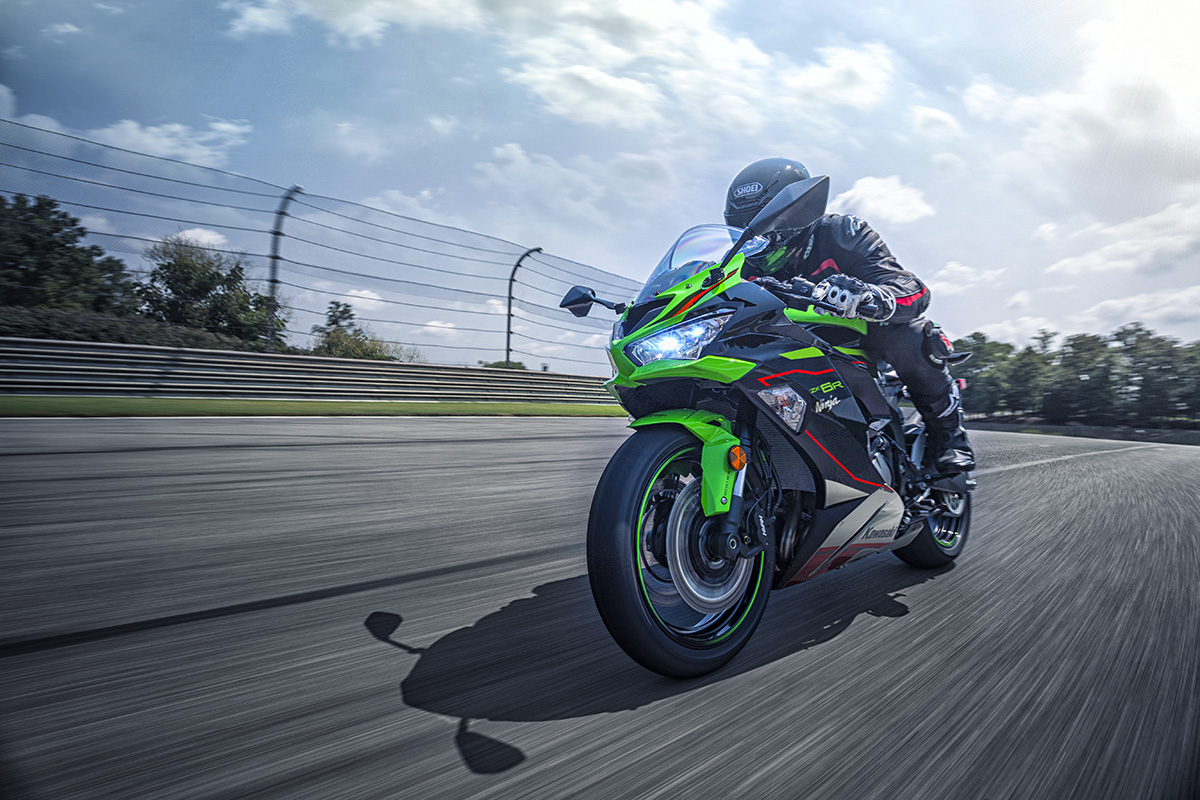
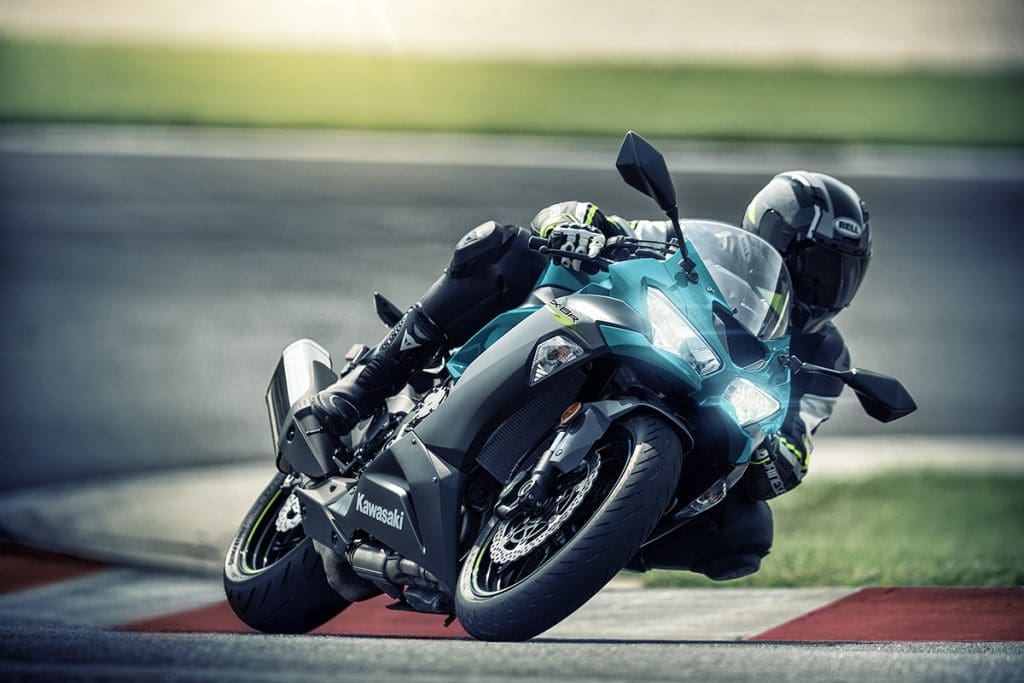
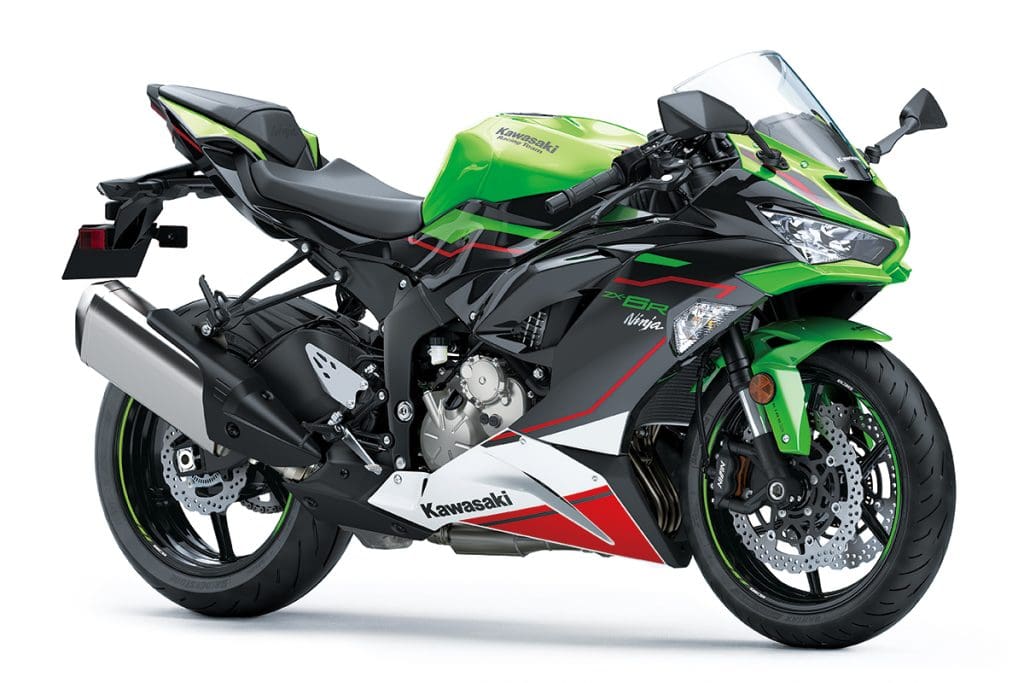
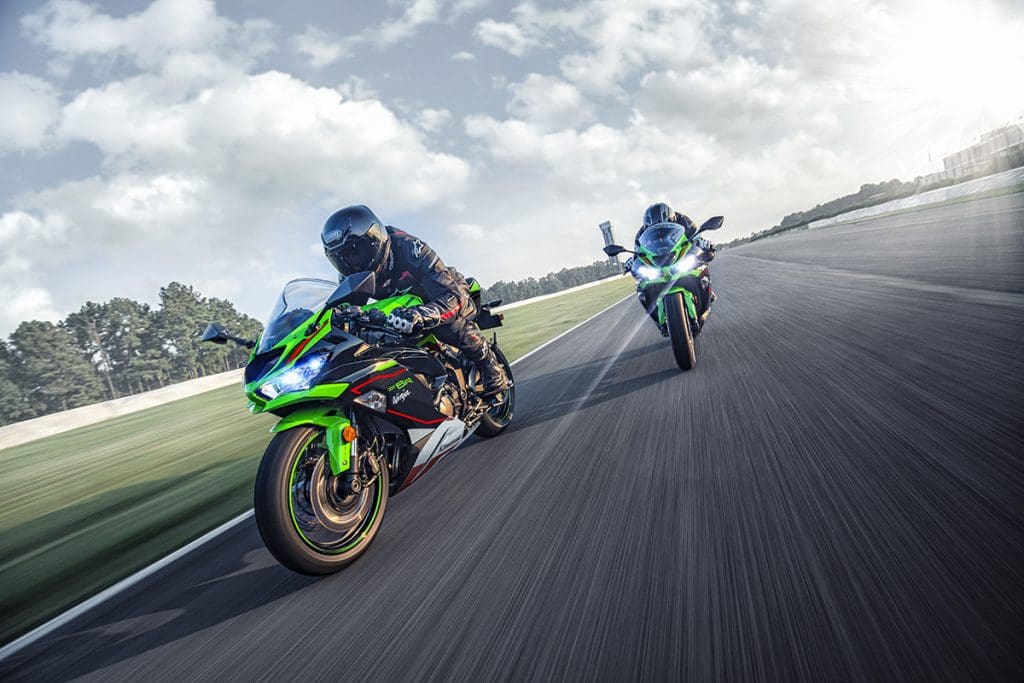
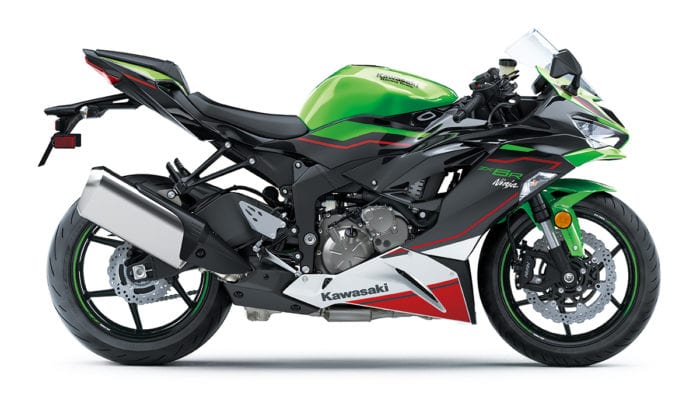
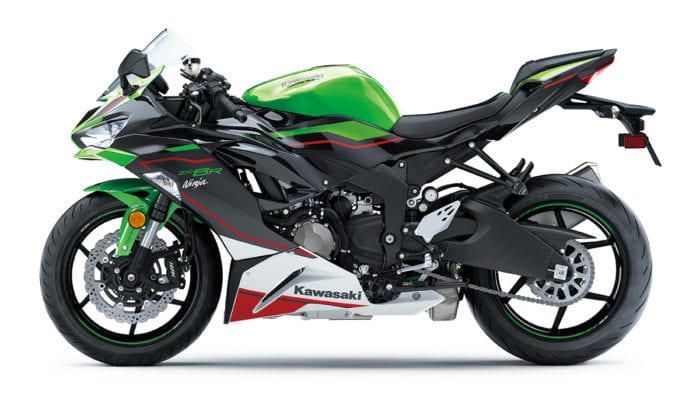
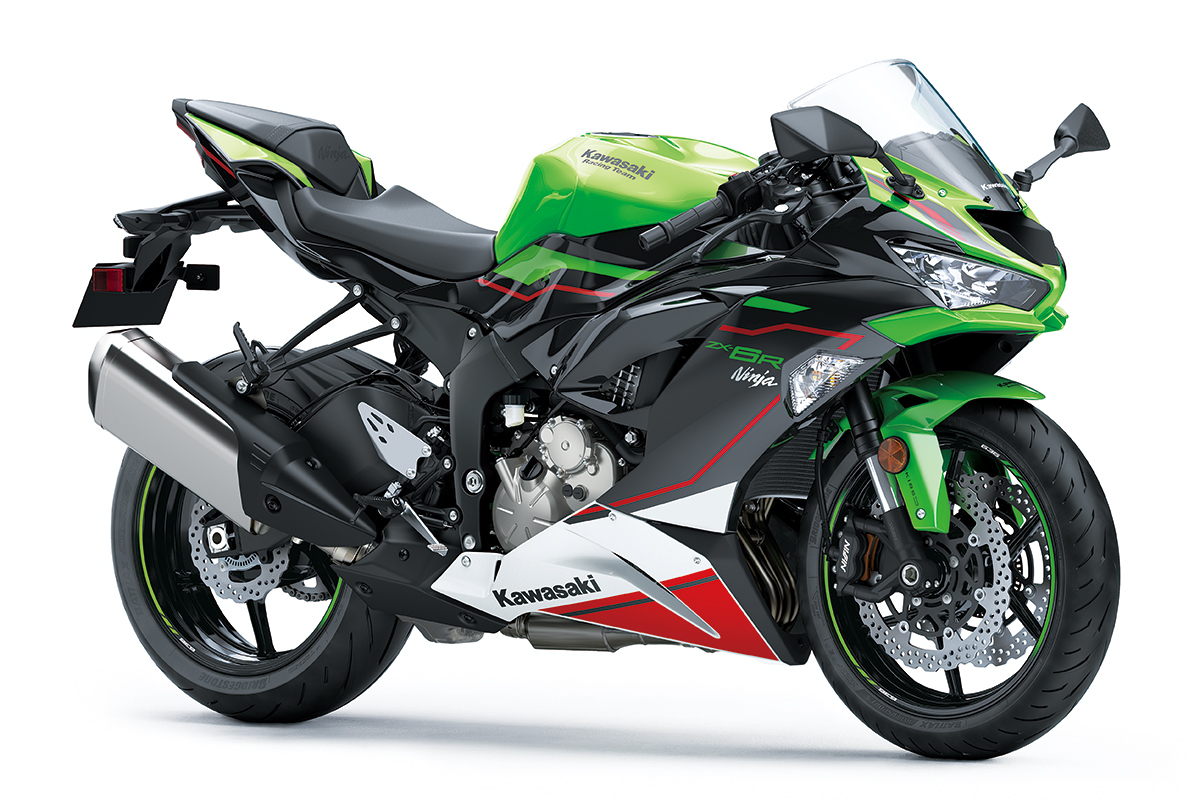

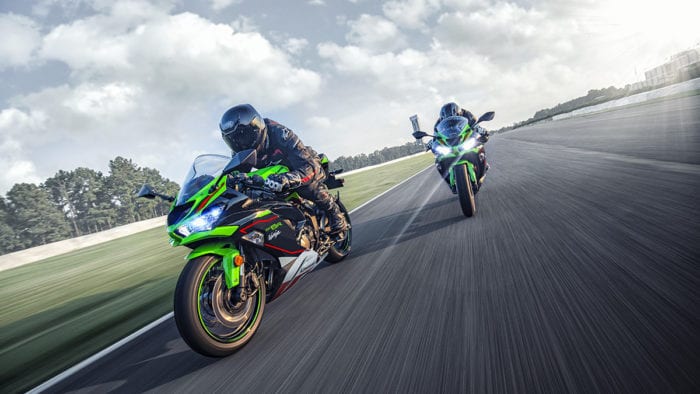
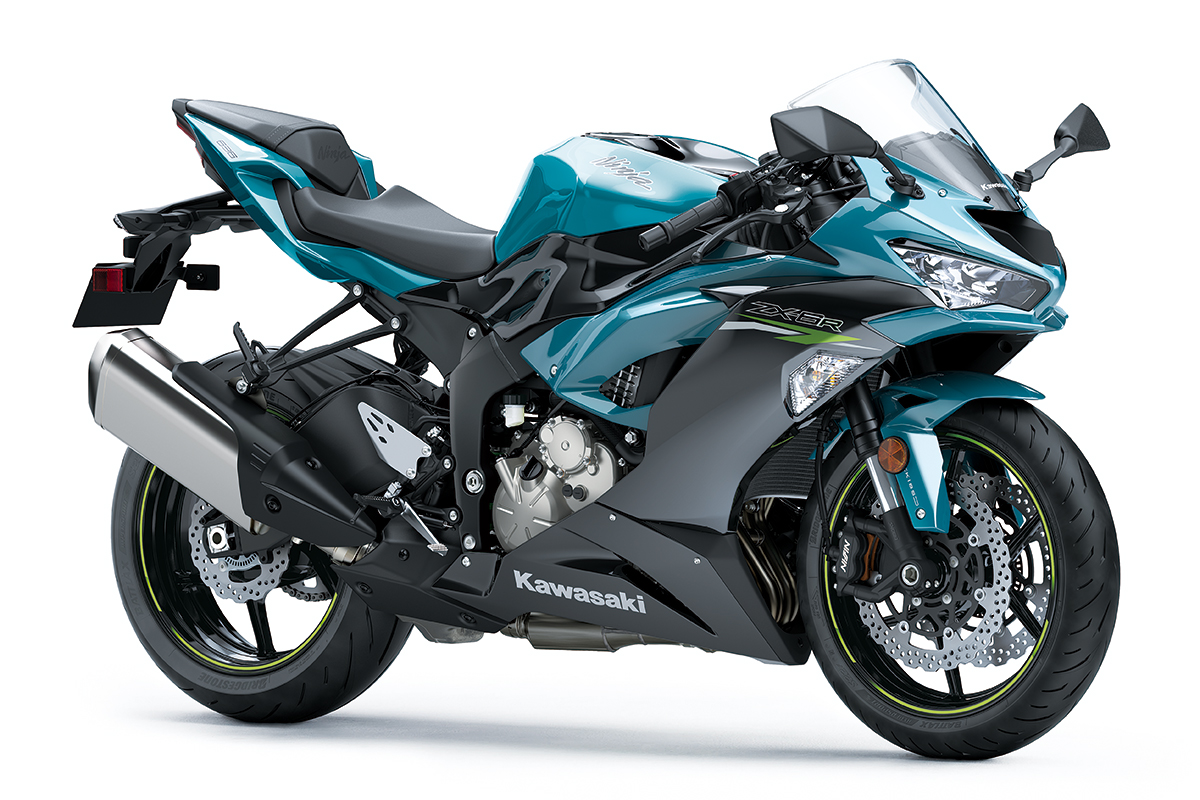

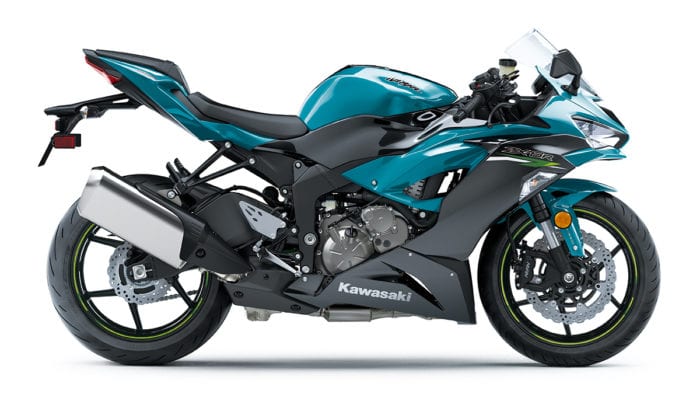
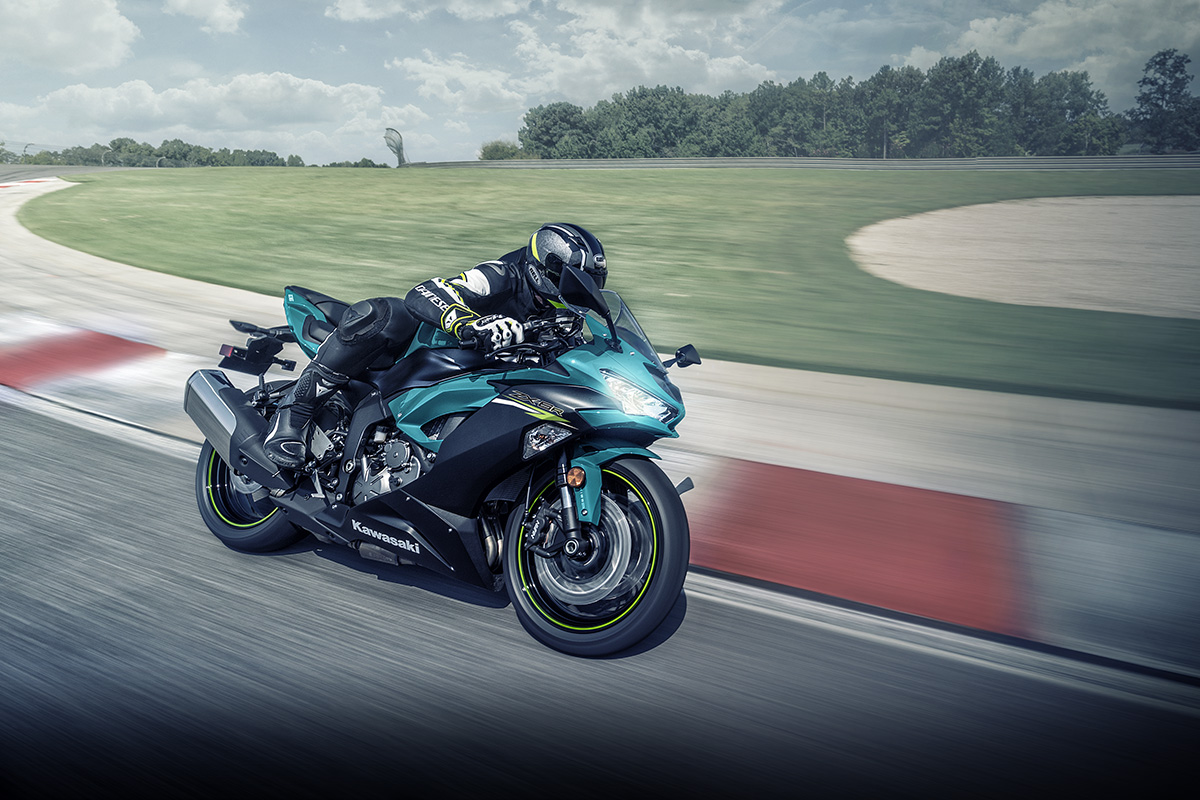
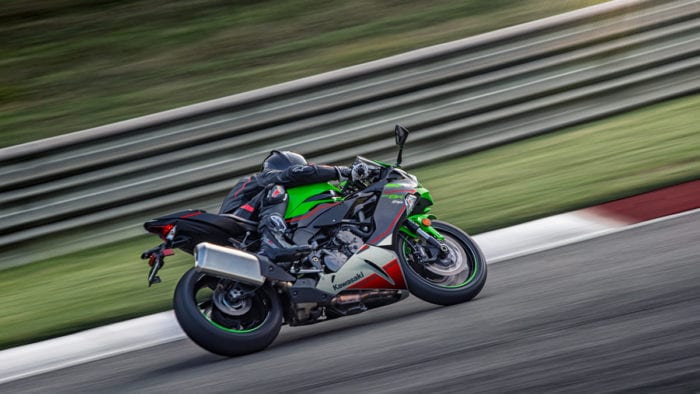

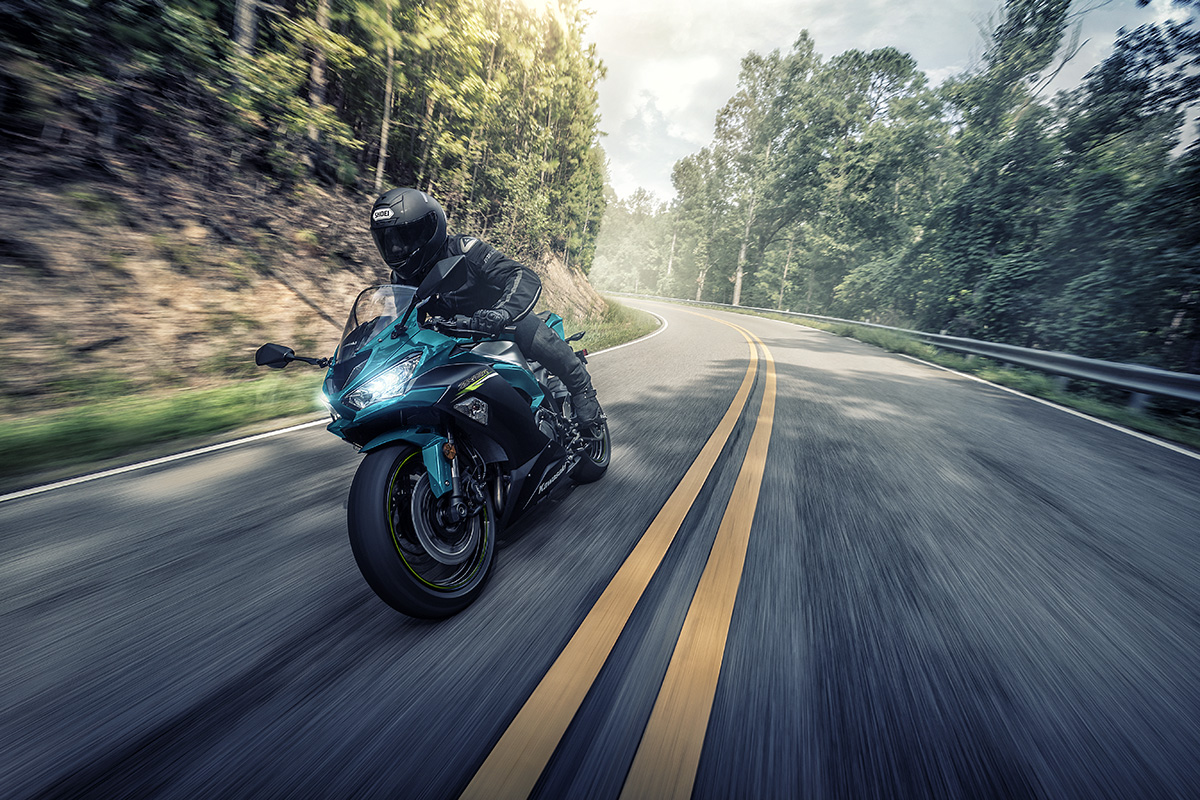
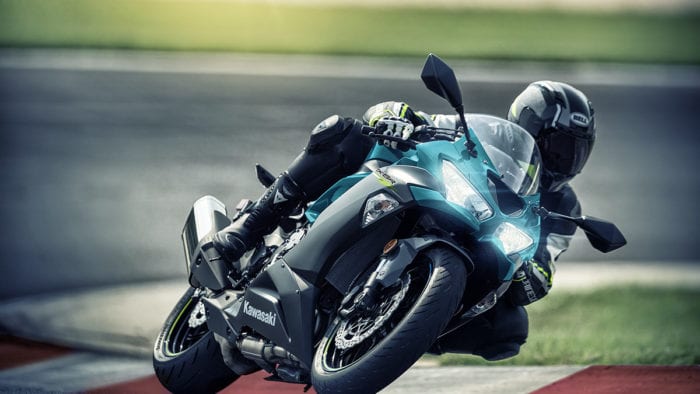

No Comment